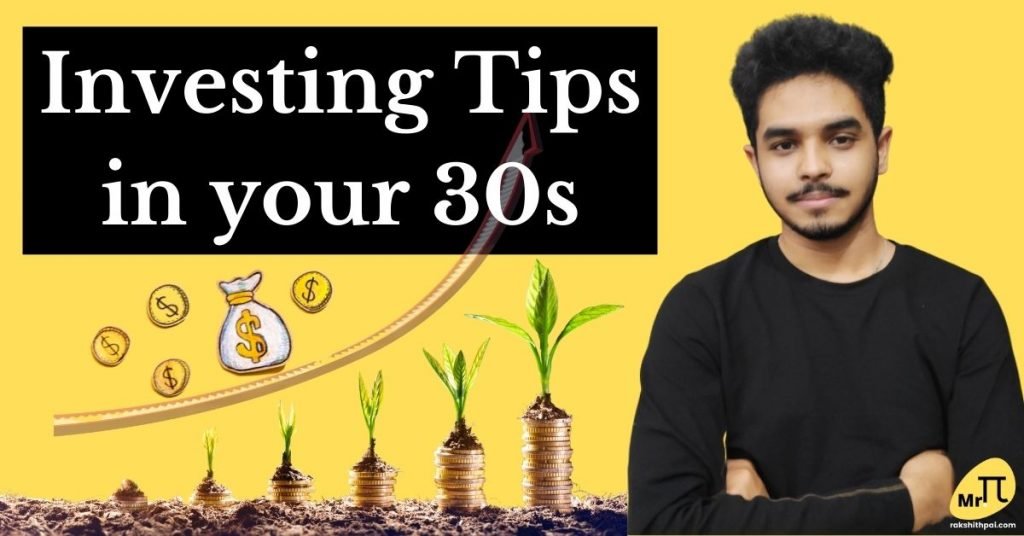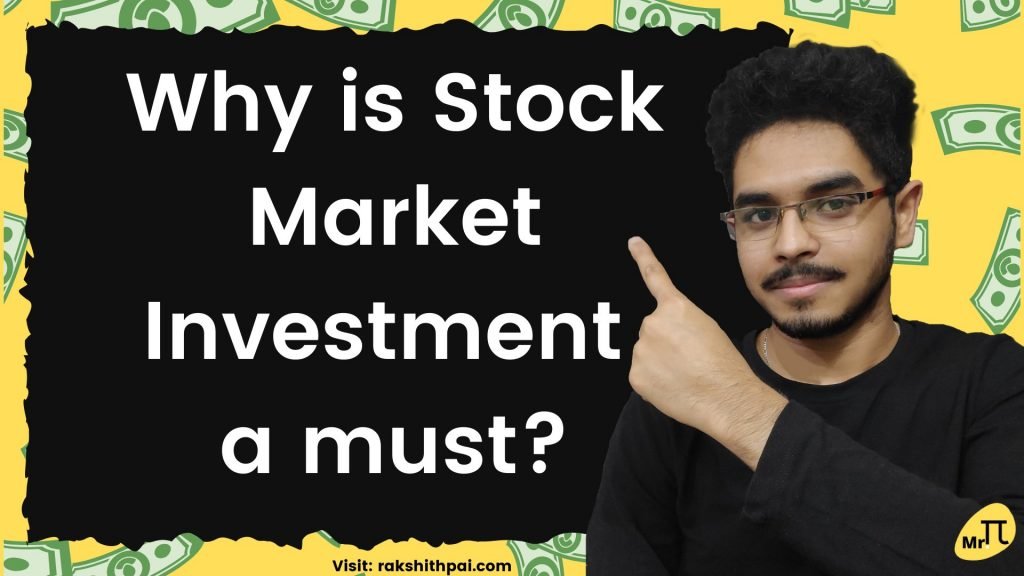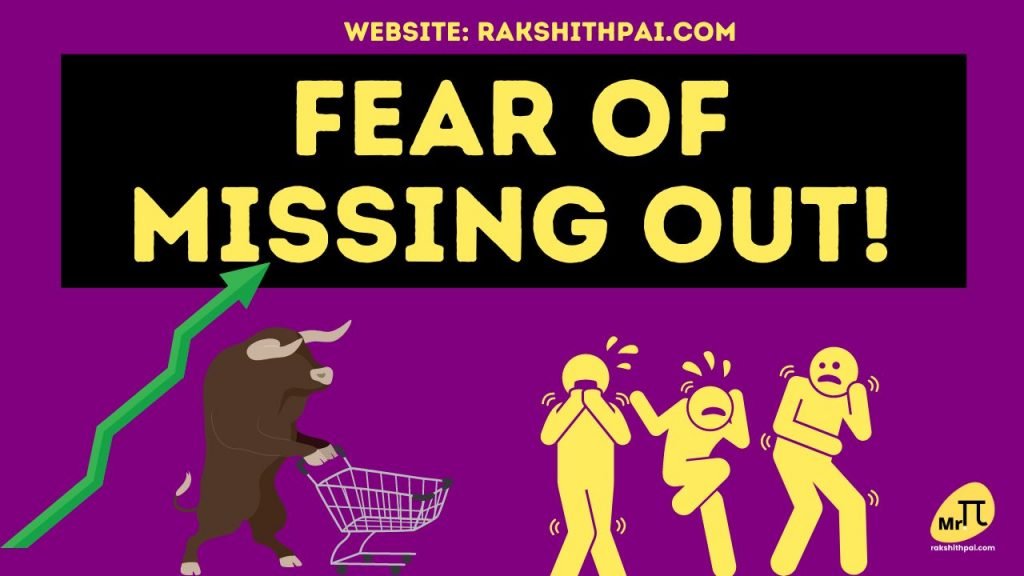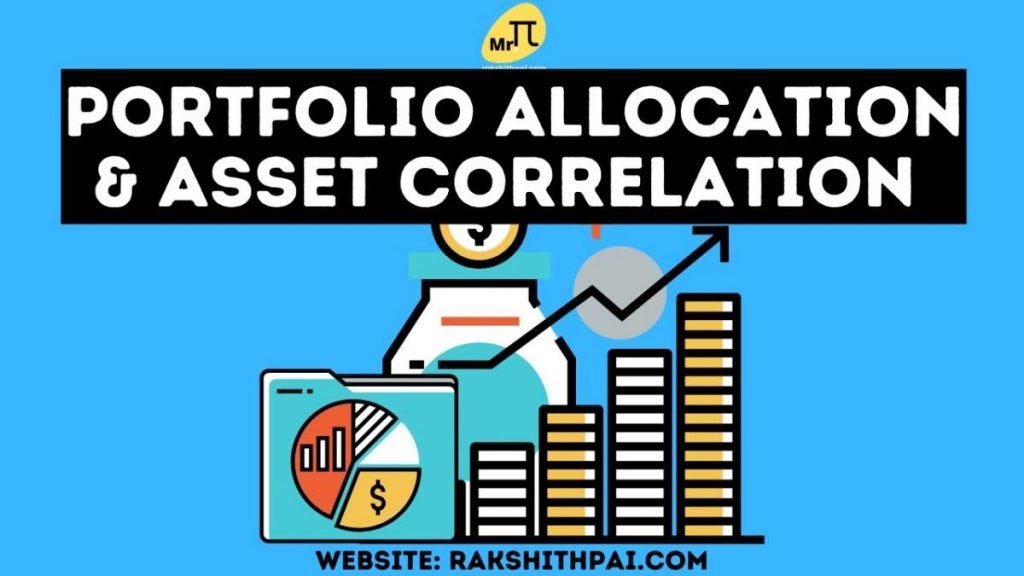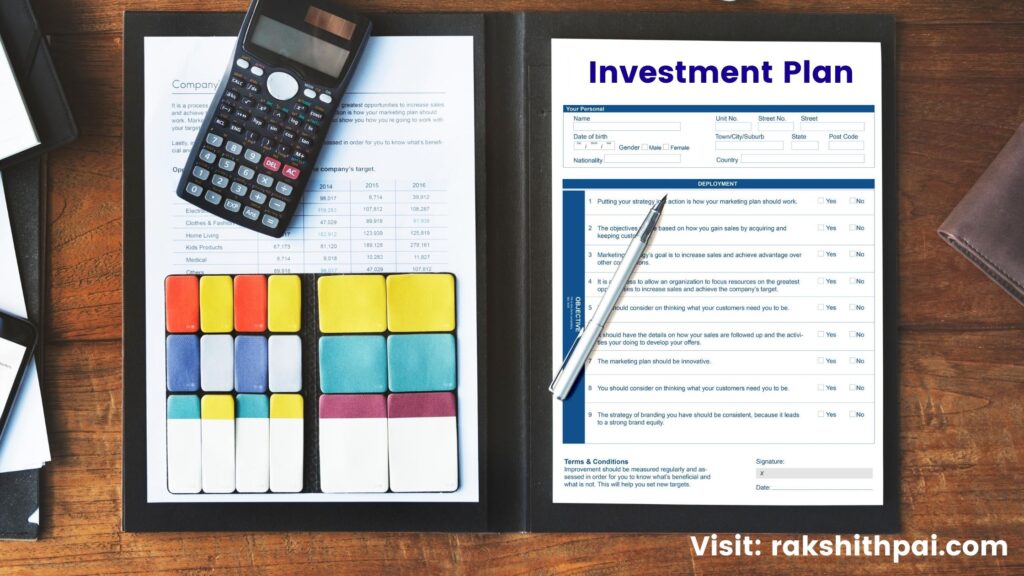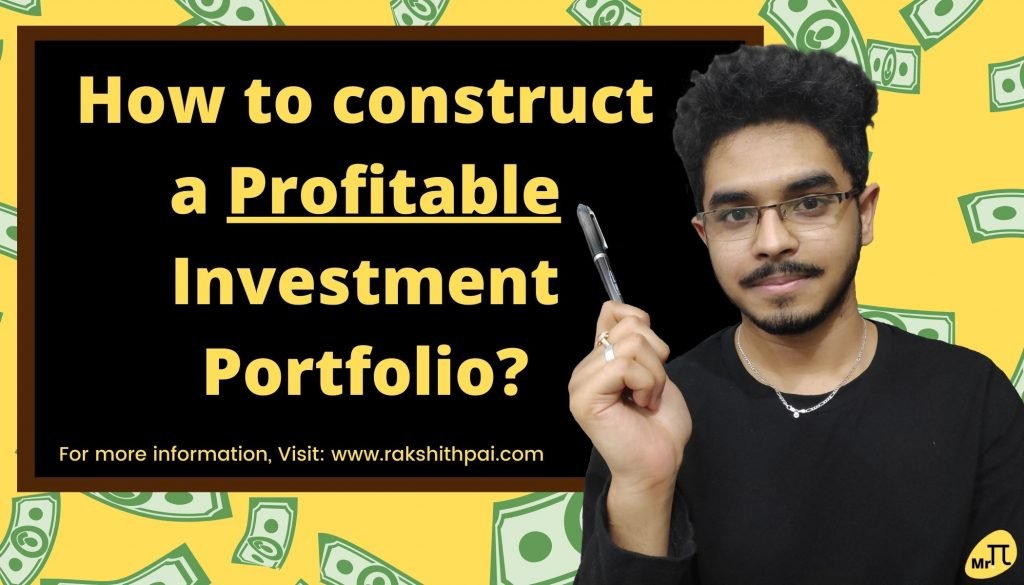Table of Contents
Investing in your 30’s
Investing in your 30s might actually be a good thing, especially for early in your career, because you are in the prime of life for building the kinds of wealth that can power the rest of your life to build a solid and well-diversified investment portfolio before retirement.
Every year, the older we get, the longer we will live and the more we will need to live in order to make any given financial goal possible. How much time do you have? How much money do you need to do what you want to do?
That’s the best measure of wealth. And in investing terms, that’s what it means to “get rich”.
So, think about what you need financially and how you will have to earn those resources or make those investments to make sure you have enough money in retirement.
With a decent career, good health, and comfort, young professionals and millennials sometimes overlook saving for the future. You can never be too young or too old to begin. They often disregard the value of having even short-term or medium-term financial goals, let alone long-term ones, in the age of credit cards and fast loans. We can not emphasize enough how critical it is to set investment objectives and to save diligently.
The sooner you begin, the more money you will accumulate throughout the course of your investing horizon. If you missed investing in your 20s or did not save as much as you could have, there is still time.
Let us discuss investing in your 30s in this article.
Either way, you can never go wrong in investing, if you follow the below-mentioned tips. For those who are interested in investing, there are two main options:
Active Investing:
It is when an investor does his/her research into a particular asset class such as Equity Market, Bullion (Gold & Silver), Bond Market, Real-Estate Market, and others.
Here, you as an investor know what you’re doing. Or are in the process of learning. In active investing, enthusiasm, and interest to learn and understand the Financial market play a greater role.
Passive Investing:
It is when an investor does very little to no research on what and where to invest in. It’s where an investor shows not much interest in the process of investing but is aware of the importance of investing in a particular asset.
Hence, takes the help of professionals or investment vehicles such as Exchange Traded Funds (ETF), Mutual Funds, Real Estate Investment Trusts (REITs), etc.
Passive Investing also mean, Buy assets that track stock market indexes and keep them for the long term; this is the basis of passive investing, a method for creating wealth over the long run. By spreading your money out among a number of different asset categories and industries rather than betting on just one company, you may reduce your overall exposure to risk.

Financing your 30s:
Individuals’ financial backgrounds are as unique as they are, and it is impossible to uncover a common thread. Assume, however, that the majority of Indian students graduate (or obtain a postgraduate degree) in their early twenties.
Give it a few years of solid professional experience and an acquired skill set, and it’s inevitable that you’ll ascend the career and pay ladder. And we can reasonably anticipate that by the time they reach their 30s, they will be in mid-senior and mid-income jobs.
As is the case with most good and right things in life, investing for the future is unappealing to many. Because it implies that you must now spend less.
For example, while starting a job on a low pay scale and experiencing financial independence for the first time, saving may not be a top priority for everyone. However, sooner or later, you will need to begin investing, not least due to the 80C tax benefits.
Retirement funds, emergency funds, and life goals such as purchasing a home or automobile, taking a world tour, or starting a business can all be accomplished with early and diligent financial planning.
If you are thirty years old, your investing horizon is also thirty years (considering you will retire by 60). This is the moment to invest in high-risk assets such as mutual funds and get a high rate of return.
Utilize our investing calculators to determine how much money you should set aside in savings now to achieve your goal, whether it is purchasing a home or obtaining a pension after age 60, for example.
Top investing tips for adults:
As responsibilities increase with age, young professionals in their 30s tend to be more focused on their professions and frugal with their money. This is especially true for people considering starting a family (or have already started). To live a tranquil and independent life after retirement, investing should begin now. The next sections discuss techniques to bolster your portfolio and produce inflation-beating returns.
Health Insurance:
Health Insurance is a form of insurance on your wealth. At times of need, at times of emergency, insurance saves one from the hospital bills which kill more people than the disease they went through.
This was clearly evident during the times of COVID-19. We know the hospital bills crossed lakhs and made people miserable. They knew not what they were signing up for. To avoid such a suspenseful attack on your wealth, have health insurance.
Please note: You are most probably covered with health insurance (sometimes life insurance is also included) in your employment. Be informed of the schemes you are involved in. Ask your company HR (Human Resource) for more information. And, if you are well covered. You need not consider this point.
Also, this is the age to seriously consider having Health Insurance. It not only benefits you in terms of any health issues coverages but, also in terms of discount on premiums in upcoming years. Give a thought.
Fund your retirement account:
At this age, we are already thinking of our retirement. We are planning to settle down and go with ease with life. We all know retirement isn’t near us. But, it’s the right time to save for a retirement benefits account. Especially for someone in their early 30’s who is at his/her mid-peak of career.
This is the time when you have sufficient disposable income. This is the time when you are at a crossroads of whether to work for life or to take off. So, instead of spending it all on materialistic things. Why not invest in such an asset that’ll give you some relief in your later years.
Retirement Savings & Investment benefits:
| Sl.No | Particular | Section (for reference) | Tax implications |
|---|---|---|---|
| 1 | Provident Fund (PF) | 80C | Deductions upto Rs. 1.5 lakh. |
| 2 | National Pension Scheme (NPS) | 80C + 80CCD | Deductions upto Rs. 1.5 lakh. Additionally, Rs. 50k deductions allowable. |
| 3 | Senior Citizens Saving Scheme (SCSS) | 80C | Deductions upto Rs. 1.5 lakh. |
| 4 | Mutual Fund Investing | 80C | Deductions upto Rs. 1.5 lakh. (Under ELSS funds) |
| 5 | Fixed Deposit | 80C | Deductions upto Rs. 1.5 lakh. |
| 6 | Unit Linked Insurance Plan (ULIP) | 80C | Deductions upto Rs. 1.5 lakh. Additionally, returns are exempt u/s 10(10D) |
| 7 | Sovereign Gold Bond (SGB) | - | Only interest in taxable |
| 8 | Government Securities | 80C | Deductions upto Rs. 1.5 lakh. |
| 9 | Hybrid Funds Investing | 80C | Deductions upto Rs. 1.5 lakh. |
| 10 | Savings - Regular & Recurring account | 80TTA | Deduction upto Rs.10,000 in interest income. |
Index funds/ETF:
Not everyone is aware of how to invest in the Stock Market. But, I’m pretty sure that each of you knows the importance of investing in Equities. Investing in the Indian Stock Market is like Investing in India. I have never been more positive about our economy than now. To know more about the importance of investing in the Stock Market, Click here!
But, to invest in Indian Equities, we need related knowledge. Right?
Well, you can invest in Indian Equities via Index funds and ETFs. This way, you’ll invest in India with little risk of losing out. How? Cause, Index funds, and ETFs are well-diversified asset classes that although might not lose all the risk involved. It might ease us by balancing risk returns.
You can start with as small as Rs. 100 and as your comfort increases, chip in more. This way, you can have a Systematic Investment Plan (SIP) wherein, you’ll need to invest every month a part of your savings into Equity via ETFs, Mutual Funds, etc.
Think long term:
All we do is for our family. Our kids’ education, marriage expenses, maybe a new house, a piece of land in a village, or maybe a trip once in a while. These are all good plans. But, in order to achieve these long-term plans. One needs to invest in it for the long term.
Planning gets you halfway through. And, if financial planning is what you are looking at. Then, early planning your finances and sticking to it will surely get you through to make you rich and wealthy.
A pro tip that I would give you is, instead of saving what’s left out of your monthly income, why not set up your investment account such that every month without your knowledge, your account will be auto-debited (automatically invest) into Equity. Ask your Professional Investment Advisor or Chartered Accountant for more information.
Side hustle:
I know the word “Inflation” has come in this article earlier. But, let me stress out the dangerous impact it has on one’s savings. To simplify, If you save at 4% annually (savings account bearing 4% interest rates) and the running inflation rate is at 3.5% (in most usual cases, this be the rate). You are kind of making 0.5% growth in terms of interest earnings.
Now, unless you have over a million dollars in savings. This tiny bit of interest income doesn’t serve any purpose. You are not making any real progress in wealth creation.
So, in order to make a real living in this cumbersome economic condition. It’s better to work on a side hustle. Something you love and can give you some monetary benefits. It can be anything! Anything you like to do.
“If a company doesn’t have an online presence then it’s destined to go unnoticed, and maybe go broke! Similarly, Every Individual should try and have an online source of income aka, a side hustle via the Internet.”
How to solve the Debt burden?
What to do if I have a student loan or a home loan? Should I save and invest in the Stock Market or other assets instead of paying off my debts? Well, it’s a tricky situation.
And, here you have to remember 3 aspects.
- What are your net interest payments? At what rate are you paying interest?
- What rate of return can you expect from your investments?
- Do you have any kinds of tax exemptions from your Interest payments?
If you are making more money than your interest payouts and you are getting tax exemptions such as 80E (Education loan), 80EE (Residential House Property loan), 80EEA (Interest paid on home loan for affordable housing), etc.
Then, you must keep some part of your debt unpaid. Such that you can reduce your tax liability. For more information, contact your Chartered Accountant.
And, if your interest payments are high and the tax savings on such payments are negligible. Then, concentrate most of your savings on settling the debt and only when you are out of your debts, you should concentrate on Investments. Because Investing in Equities or any other asset class will not assure you better returns always. In fact, you might lose money investing. But, interest payments are something that you can’t stop. It’s a liability you are supposed to pay no matter what
So, it’s suggested to pay off your debt or at least bring your debt to a comfortable level and then concentrate on Investing.
Tips and suggestions for those in their 30s:
- Save as much as possible and be frugal with your lifestyle.
- Analyze your income and expenses in order to plan for retirement and other long-term goals.
- Develop a robust and long-term portfolio that’s well diversified.
- The planning you do now will go a long way!
- Maintain strict financial discipline.
- Understand the importance of Compounding.
- Don’t depend on any one asset class for retirement.
- Never touch your retirement fund, even in an emergency, unless absolutely necessary.
- Increase your savings & investments wherever possible.
- Have a healthy lifestyle. Cause, Health is wealth.
Conclusion:
If you are in your 30s and if you are reading this article. Then you are on the right path. It’s not only that you are on time. It also means that you are serious about your finances.
That’s very appreciable. I always believed that wealth and riches can solve if not all, But, most of our societal problems. And, our 20s and 30s should be concentrated on making wealth. If you are in your 20s then, I have written another article for you. CLICK HERE!
Remember, by becoming rich and successful financially, you’ll not only lift yourself, but you’ll also serve your entire family and friends along with you. And, that’s the best thing you can do for your people.
So, think of wealth and richness as an attainable goal. Something that’s possible by discipline, planning, and years of hard work. And, trust me! The extra efforts you put in now will save you and your family for years to come.
Now, if you are serious about Saving more, Investing well, and more. Then, consider opening your DEMAT account and start your Investing journey as soon as possible. Good luck!
For More Information, Check this Video:
Disclaimer: All the information on this website is published in good faith and for general information purposes only.

